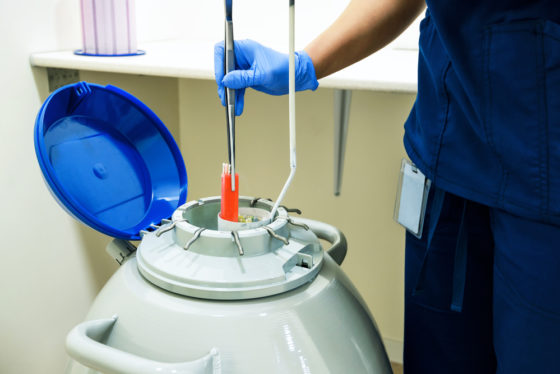Gynaecologist conceived at least 21 children using his own sperm


A gynaecologist from Leiden conceived at least 21 children by using his own sperm for fertility treatment, hospital administrators have said.
Jan Beek worked for 25 years at the Elisabethziekenhuis hospital in Leiderdorp, which has since been absorbed into the Alrijne Ziekenhuis.
The hospital said the case came to light when Fiom, an organisation that helps people trace their biological parents, found DNA matches for 21 children whose mothers had received fertility treatment in Beek’s clinic.
Beek, who died in 2019, is the third Dutch fertility doctor known to have used his own sperm to conceive children in his clinic. Both Jan Wildschut, who worked in Zwolle, and Jan Karbaat, from Rotterdam, fathered at least 40 children between the 1970s and the 1990s.
The Alrijne Ziekenhuis has commissioned an investigation led by Didi Braat, emeritus professor at the Radboudumc teaching hospital in Nijmegen, who headed the inquiry into Wildschut.
‘The way this doctor behaved at the time is unacceptable,’ Peter Jue, of the hospital’s board of management, told Omroep West.
More descendants likely
We don’t exclude the possibility that dozens more descendants of Jos Beek might be discovered. That’s why we’re asking everybody who has been treated by this gynaecologist to come forward.’
The 21 known children of Beek were conceived during 1973 and 1986. Their mothers believed they were being fertilised with sperm from anonymous donors.
Dutch law limits the number of children that can be conceived from one sperm donor to 25. Since 2004 children have had the right to know the identity of their biological parents once they reach the age of 16.
Beek worked in Leiderdorp until 1998, but the hospital is unable to contact the women he treated directly because the records have been destroyed.
‘Little regulation’
Jue said the hospital’s managers were ‘greatly shocked’ when they heard of the case for the first time. ‘Shocked for the children who are affected by this and of course for their parents.’
‘In the early 1970s fertility treatment was in its infancy,’ he explained. ‘You have to realise that treatments with donated sperm were just starting. There was hardly any regulation and doctors had far more freedom to go their own way than they do nowadays.’
The hospital has set up a helpline for women who were treated by Beek, their partners and children. Anyone who thinks they may be affected can call 071-582 9259 or email informatiecentrum@alrijne.nl.
Thank you for donating to DutchNews.nl.
We could not provide the Dutch News service, and keep it free of charge, without the generous support of our readers. Your donations allow us to report on issues you tell us matter, and provide you with a summary of the most important Dutch news each day.
Make a donation